Tonkatsu (Pork loin cutlets)
"Tonkatsu", a favorite of children in their prime, with a simple sauce recipe that can be made outside of Japan.
"Movie recipe" introduces a classic pork dish familiar to Japanese diners with video clips.
In this first installment, we introduce pork loin tonkatsu, a pork cutlet full of nutrients and vitamin B1.
INGREDIENTS-SERVES 4
- Loin pork, approx. 2 to 3cm thick, weighing 120g to 200g: 4 piece
- Flour: 100g
- Egg: 2 to 3
- Breadcrumbs: 300g
- Vegetable oil (Not too strong in flavor): 2~3L
- Salt and pepper: a pinch
TONKATSU SAUCE
- Worcestershire sauce: 2 tablespoons
- Ketchup: 2 tablespoon
- Sugar: 2 tablespoon
- Miso: 1/2 teaspoons
- Water: 1 tablespoons(Increase or decrease as desired)
- Lemon juice: 1 moderate amount
PROCEDURE
- To prevent the meat from shrinking, cut a slit with the tip of the knife between the lean and fatty parts and tap the meat with the back of the knife to make it tender and even.
- Season both sides of the meat with salt and pepper.
- Coat with flour, egg, and bread crumbs. The flour should be “dipped well and dropped well”, the egg should be “dipped evenly on the back, front and sides”, and the breadcrumbs should be “dipped in generously and pressed with your hands”.
- Mix the sauce ingredients to make “Tonkatsu Sauce”.
- Heat the vegetable oil to 170°C. Sweep the batter into the oil so that it does not fall out, and turn it over when the surface becomes slightly golden brown, about 3 minutes. After another 3 minutes, remove from oil.
- Serve with shredded cabbage, topped with Tonkatsu Sauce and a squeeze of lemon, if desired.
Point
-
If you want to fry pork cutlets well, the trick is to use plenty of oil.
If there is not enough oil, the batter will easily flake off, and the delicious juices will leak out from the flaked-off areas.
Therefore, fry them well when there is just enough to float in the oil when you put the meat through it.
The “katsu” in “tonkatsu” is the same as the “katsu” in “Cutlet”.
In Japan, “katsu” means “victory (勝利)” and is sometimes eaten on the eve of children’s games such as baseball and soccer games. This is also why it is a very popular menu item among children.
The word “cutlet” is said to have originated from the French dish “cotelette,” which is made by dipping breaded beef in breadcrumbs and frying it.
“Tonkatsu” is one of the typical Japanese dishes, taking something good and rare from overseas, arranging it in our own way, and making it into a standard dish that can be found on the home table.
Pork loin is said to be the most commonly eaten part of pork by Japanese people. In addition to pork cutlets, it is also eaten sauteed or thinly sliced and grilled with ginger. It is characterized by a perfect ratio of lean to fatty meat, with sweetness and flavor concentrated in the fatty part on the surface, and a fine texture and tenderness. Yongenton*1“Yume no Daichi” pork is blended with the “Berkshire” breed, which is popular for its high quality “sashi” (fatty meat) sandwiched between the lean meat and sweeter fat compared to regular pork and Sangenton*1pork.
*1 Yongenton Pork are born from a combination of two maternal breeds and two paternal breeds.
The maternal line is a crossbreed of the Landrace, which has excellent lean meat, and the Great Yorkshire, which is a good rearing breed. The paternal line is a crossbreed of the Duroc, which produces superb fat meat, and the Berkshire, which has fine so-called “sashi,” or fat with a sweet taste.
Recommend post
-

COLUMN
Nutrients in Pork.Porkology vol.2
-
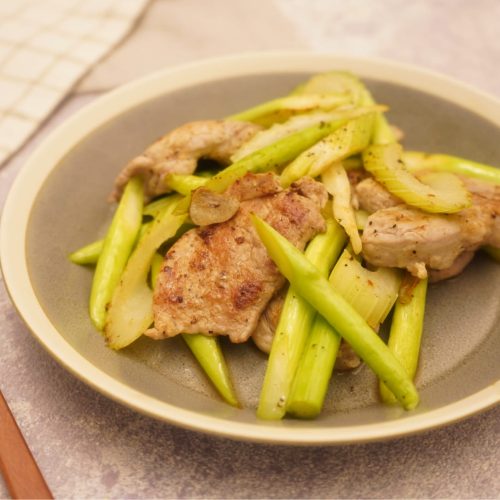
RECIPE
Garlic butter sauteed pork tenderloin and celery.Seasonal recipes to enjoy
late summer vegetables and
"Yume no Daichi" -
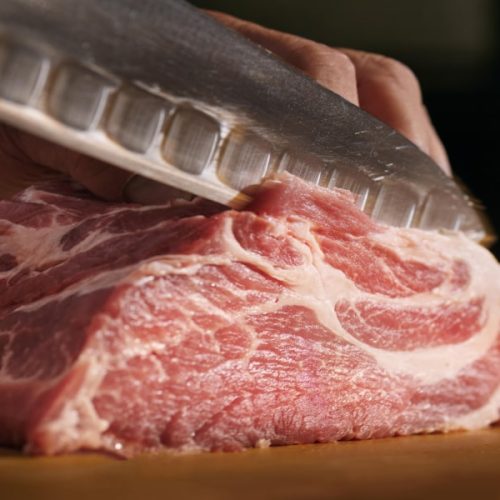
COLUMN
About the pork we eat.Porkology vol.1
-
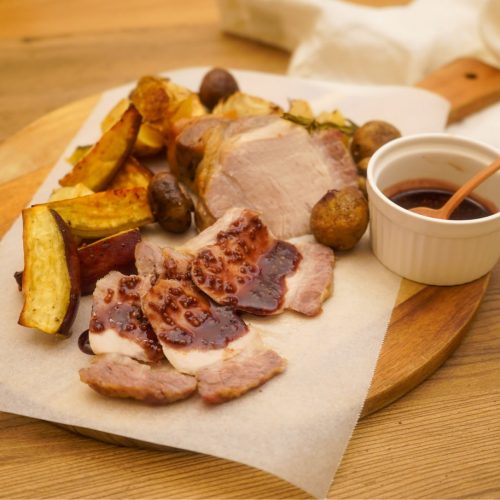
RECIPE
Roast pork with grilled vegetables.Seasonal recipes to enjoy
autumn vegetables and
"Yume no Daichi" -
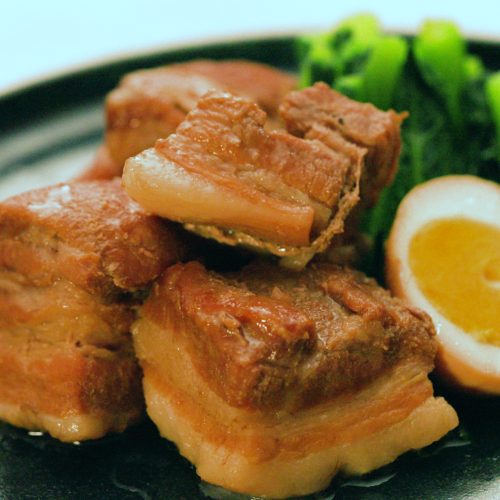
MOVIE RECIPE
Pork Kakuni (Braised pork belly)Enjoy the tender texture and well-seasoned flavor!
-
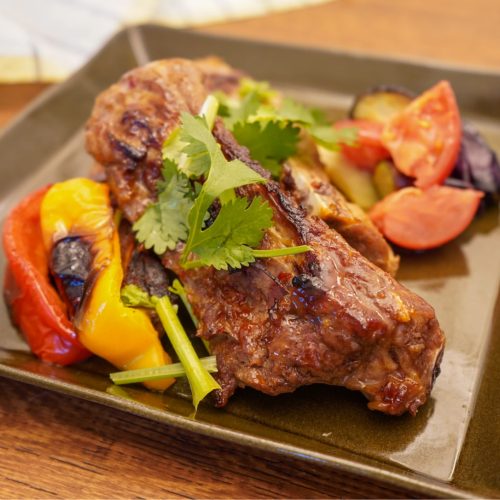
RECIPE
Spare ribs in chilli sauce.Seasonal recipes to enjoy
early summer vegetables and "Yume no Daichi"
